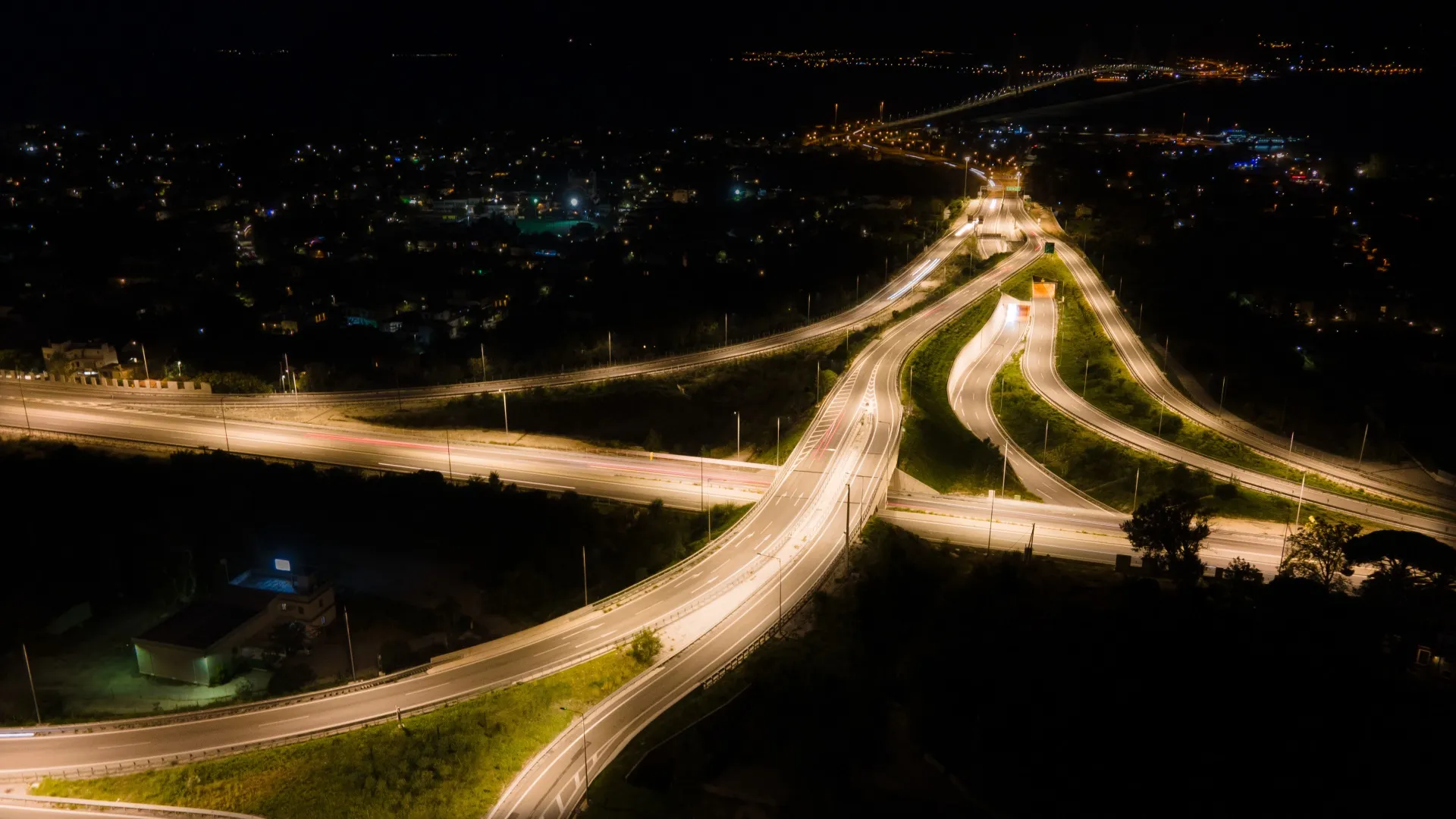
The Athens-Patras highway is the first in Greece to have a smart lighting system that automatically adapts the road lighting to the level of traffic
The system along a trial section of the tolled 218km-long highway - also known as Motorway 8 - adjusts the lighting to best suit the driving conditions, according to Vinci Highways, operator of the road. Vinci has committed to achieve operational net-zero emission on its network by 2050.
The system uses artificial intelligence and machine learning to determine the optimal lighting level by processing live data including traffic, weather and road incidents from multiple sources. Constant monitoring of the vehicle traffic at each interchange of the highway allows the system to calculate the total traffic and make forecasts for the next hour. When traffic decreases and predictive traffic remains low, the system progressively reduces intensity of lighting.
The system also includes real-time data from the highway’s weather stations and cameras to immediately increase lighting in case of a change in driving conditions. The system has been set up in a trial along the Elefsina to Corinth section and will be progressively implemented along the entire length of the highway.
Vinci says the adaptive lighting system, combined with the energy performance of the LED lights already set up along the complete length of the Athens-Patras highway, will reduce annual energy consumption for night lighting by up to 75%. It also reduces light pollution for people living close to the motorway.
The adaptive lighting system has been developed in collaboration with the National Technical University of Athens and specialist start-ups including Extrabit, Athens-based predictive weather forecasting company Ex Machina and Invision AI, which provides video-based AI solutions for transit and public safety applications.
Dutch firm Tvilight provided the luminaire controllers and software.
Extrabit supplied the machine learning algorithm that accurately predicts the number of vehicles in predefined future intervals. The company also provided the communication protocols for interfacing with around 8,000 LED dimmable luminaires, as well as the visualisation and control of the complete system on a web-based platform.









